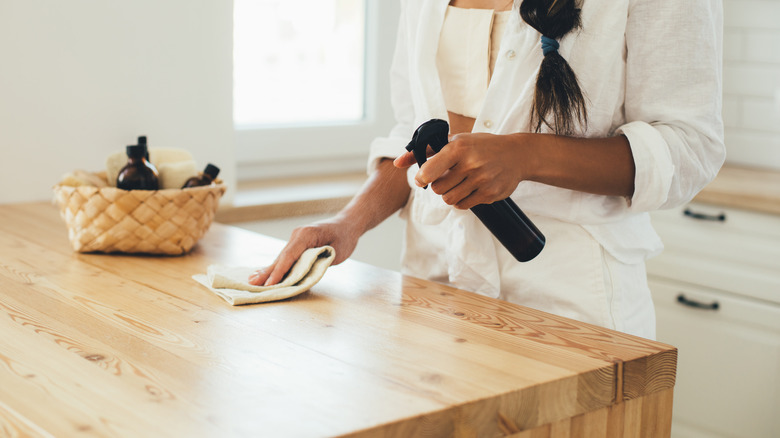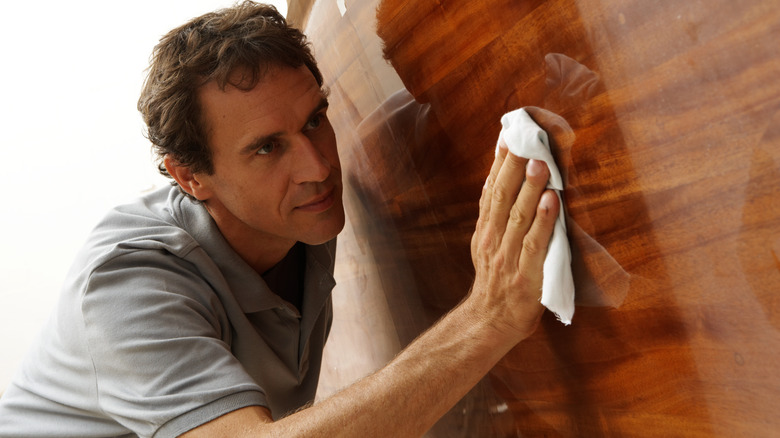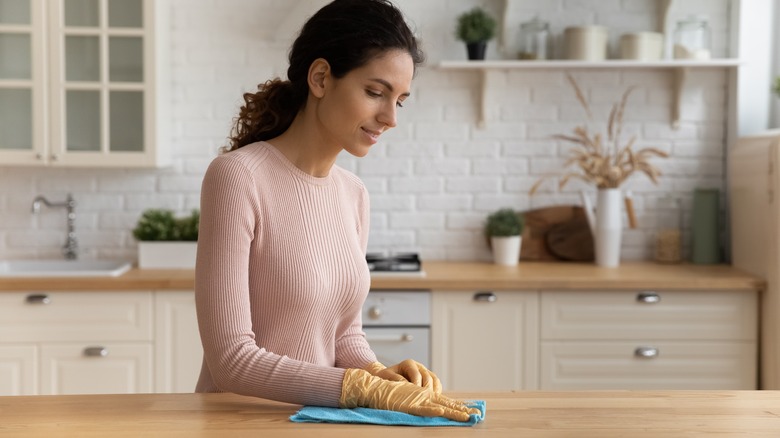Vinegar And Wood Furniture Don't Mix - Here's Why
You've probably heard about using natural cleaning solutions like vinegar to restore luster and fight stains. The concept is tempting, right? After all, a non-toxic, inexpensive, and readily available cleaner like vinegar sounds like the perfect choice. Yet, despite its efficacy in many other cleaning scenarios, vinegar can be more of a foe than a friend when it comes to wood furniture.
This is because vinegar is highly acidic. This quality, though helpful in other contexts, wreaks havoc on the wood. The result is the stripping away of the wood's natural oils. Your once vibrant, glossy furniture gradually becomes dull and more susceptible to damage. It's a clear-cut case — vinegar and wood simply don't mix.
Despite this revelation, you need not feel disheartened in your quest for the perfect cleaning solution for your wooden furniture. A wide array of alternative products, specifically designed to be gentle yet effective on wood, are at your disposal. They can restore the shine, erase the stains, and, most importantly, respect the integrity of the wood.
Let's unpack the reasons behind this incompatibility between vinegar and wood in greater detail. We'll also explore alternative solutions, demystifying the process of cleaning and maintaining your treasured wooden furniture.
The unfriendly chemistry between vinegar and wood
Vinegar is a powerful cleaning agent, but its strengths become its downfall when it comes to wood. Why? Because vinegar is highly acidic, usually with a pH of around 2.4. When you apply vinegar to wood, it disrupts the pH balance of the wood surface. This imbalance triggers a reaction that strips the natural oils from the wood. The wood, in turn, becomes dry and dull, losing its inherent luster. Moreover, repeated vinegar exposure can lead to more severe damage. It can cause the wood to weaken over time as the acid eats away at the wood's structure. You wouldn't want your beloved furniture to lose its structural integrity, would you?
Aside from the chemical reasons, there's a purely visual reason you shouldn't use vinegar on wood furniture. Vinegar's acidic nature doesn't just affect the durability and luster of wood — it also changes the wood's color and finish. So in short, while vinegar may seem like a handy, eco-friendly cleaning solution, its acidic nature can damage your wooden furniture, both in terms of structure and aesthetics. Instead, stick to cleaners specifically designed for wood care. That way, you ensure your furniture stays as beautiful and durable as the day you first fell in love with it.
The best way to clean wood furniture
Cleaning your wooden furniture or surfaces requires careful attention and the use of appropriate cleaning products to maintain their natural luster and longevity. Often, a simple approach is all you need. A microfiber towel and regular, mild dish soap might be your best allies. But here's an important tip: always test the cleaner on a small, hidden area first to ensure it does not discolor or damage the wood.
For daily cleaning, you can lightly dampen your microfiber cloth and gently wipe down the wood surfaces. If your furniture is slightly dusty, using the microfiber towel when it's dry can work wonders. The goal is to regularly remove dust and grime, which can build up over time, dulling the wood's natural sheen.
Sometimes you might face more stubborn stains or grime, requiring a stronger cleaning solution. In such cases, a wood-specific cleaner becomes handy. It's beneficial to polish your wooden furniture every now and then to restore its natural shine. Choose a high-quality furniture polish, and follow the instructions on the label meticulously. A pro tip: always apply the polish to the cloth, not directly to the surface of the furniture. This helps prevent buildup, ensuring your furniture keeps its natural look without appearing overly glossy.
By taking these careful steps in your cleaning routine, you're not just cleaning your furniture — you're preserving its character, prolonging its life, and ensuring it continues to add warmth and elegance to your living spaces for years to come.


